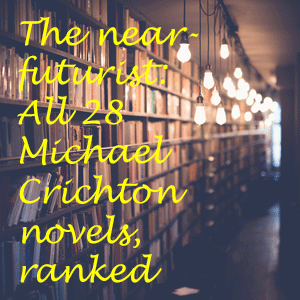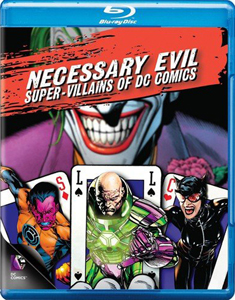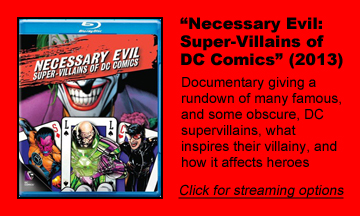As its title suggests, “Necessary Evil: Super-Villains of DC Comics” (2013) only chronicles DC villains, but that’s not a problem since “Batman” is widely acknowledged to have the best rogues gallery in comics, plus there are icons like Lex Luthor from “Superman.”
Indeed, one of the interviewees – most of whom work on DC comics or animated series – notes that there have been literally thousands of villains in the DC Universe’s history.
Weight of the lore
That’s why it’s disappointing that I don’t come away from the documentary with a deeper understanding of any single villain – although I do indeed feel the weight of 78 (now 86) years of lore.
Narrated by the stentorian tones of Christopher Lee, the film is jittery and overproduced, and if you didn’t know it’s a DC production at first, you’ll catch on by the time it pitches DC’s 2011 New 52 relaunch. Being produced in-house isn’t a deal-breaker (see the Michael Jordan-backed “The Last Dance”), but this one is entirely free of criticism and plays at a surface level.
Granted, it covers a lot of surface. The sources (who are also fans) breathlessly say “Take for example …” whenever presented with a theme, such as “power” or “revenge” or “redemption.”
They say something about a personal favorite villain, we get comic-panel grabs or animated clips, and then it’s on to the next interviewee with their own favorite; probably 100 villains are mentioned. Evil never rests, and neither does this documentary.
Doesn’t go deep
Each of the themes is worthy of discussion, but “Necessary Evil” doesn’t go deep, and some of these topics can’t be handled in cursory fashion. Take the idea that villains are the heroes of their own story, and if they were the main character we might see them as a hero.
This is true to a point, but the documentary doesn’t dig into how this isn’t the same thing as heroism. Evil acts and good acts can be delineated; that the villain “meant well” doesn’t make him indistinguishable from a hero.
At times, I was inspired to think deeper about some themes, like the chicken-or-egg question of whether heroes or villains came first. One interviewee states that heroes wouldn’t exist without villains, and villains wouldn’t exist without heroes. It would’ve been nice at this point to illustrate this conundrum with a classic arc about the topic.
Flawed format
But the format is flawed from the start, as they let the interviewees riff on their personal favorites. The PR aspect of the piece is especially noticeable when a “Green Lantern” writer summarizes his recent stories about Sinestro – certainly giving us an example of “a villain who means well” but not sharing much insight.
By the end of this film, I had seen accurate but brief analyses of villains I was familiar with. (A good tidbit: “The Riddler is the most self-defeating villain in DC Comics.”) And I had been bombarded with dozens I had barely heard of, but I couldn’t pick them out of a lineup a day later.

The documentary does make me want to revisit “Batman: The Animated Series.” And it makes an intriguing pitch that “Suicide Squad” is among the most nuanced explorations of tragic villainy.
I wish this documentary was so nuanced. It’s worth watching once, especially if you desire a slew of potential starting points for a fresh DC dive, but “Necessary Evil” is a missed opportunity for greatness.


